Karaoke:
The karaoke cowboys of São Cristóvão
by Talita
The Luiz Gonzaga Centre for Northeastern Traditions is a maze of booths big and small that, taken as a whole, produce an effect of stimulating disjointedness similar to a reddit front page: each unit dense and self-contained yet impossibly close to one another, each a fold in time-space where one can stay forever and then emerge from.
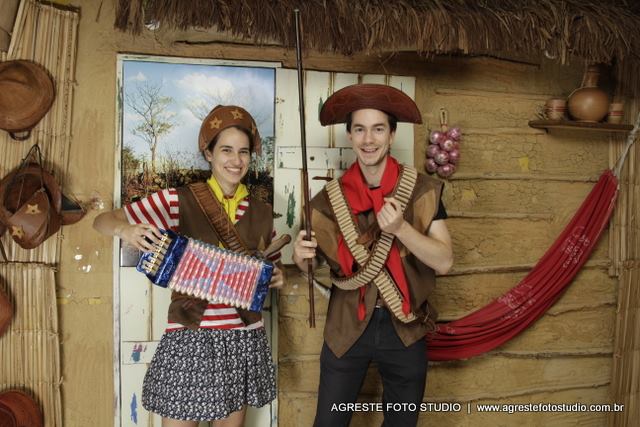
Shops selling cupuaçu and guaraná liqueurs. Photo studios with shotguns and accordions as props. A central stage where a plus-size beauty contest is taking place and then, immediately adjacent to it, two other stages, one playing loud forró, surrounded by dewy-eyed couples, the other one claimed by an impromptu stand-up comedian telling passers-by about his infidelity woes. Walls covered in cordel booklets, the wood-printed stories of cangaço heroes, regional tales, and happy crossovers of celebrity with folk speculation: The Day George Bush Met the Devil, Michael Jackson Comes to Recife. Restaurants with sliding glass doors and air-conditioning, announcing their unchanging fare of carne de sol and baião de dois in English and Spanish. And, finally, the many karaoke bars. Most of them are concentrated within two or three strips, each blasting completely different songs at a very loud volume, and somehow it all works. On Saturdays they stay open through the night, closing only on Sunday evening.
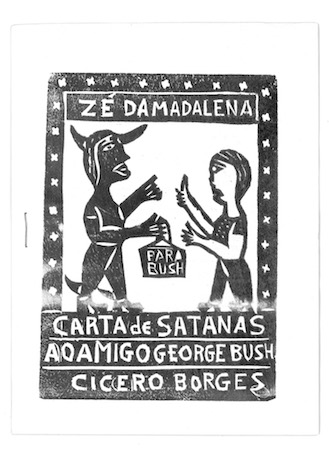
Those coming to sing karaoke must choose from a few approaches: Arrive early, in a group, find an empty bar and take it over, thus securing the power to set its general vibe; arrive late, drunk, and find a bar with a pre-established vibe you like; arrive late, in a group or at least with one other person, pick a bar at random and enjoy the challenge of manoeuvring the vibe to your preferences, knowing you will meet resistance.
I have experimented with every one of these approaches. They all have merits and they all have flaws. Arriving early in a group does entail compromise, too – how different the symphonic group vibe will always be to that of any lone karaoke cowboy. You will have to start out sober and at a half-empty bar, and most sober people will either only consent to singing the lamest of clichés, I Want It That Way, Eye of the Tiger, Take On Me, just filler bullshit to while away the hours until the atmosphere thickens and sweetens and it's impossible to imagine a world outside of this bar and everyone seems unique and perfect and it's time to get super real. It's never even guaranteed the night will ever get to that point. Often people just get bored and go home. What I'm saying is, at first a group might seem like your safest bet, but there are no safe bets, and that is the point and that is what makes karaoke great.
If you're a pro of pros, you can arrive early and alone. This will elevate you to legend status. It is not for everyone and it shouldn't be. These are the people who live for the Luiz Gonzaga Centre for Northeastern Traditions, they are the ones who seem to come from nowhere, who are named after their outfits ("The Lady in the Purple Dress" who only ever sings Ovelha Negra by Rita Lee), who will keep going regardless of what happens, who have absolutely no qualms about following a massive singalong to Bohemian Rhapsody at three in the morning with a John Lennon B-side, who will keep a straight face and a flat tone and then get picked up at dawn by a mysterious red Ford Ka, who will come back next Saturday when you are but a passing tourist in their world.
It is impossible to arrive late and alone and stand any chance of affecting the vibe anywhere. People will assume you're just trying to divert their attention so you can pickpocket them or something. It won't even be fun. Trust me, it will not be heroic.
Also, I want to make clear there is no shame in simply picking the place with the vibe you like best and setting up camp there for the night. Usually, that is what I try to do. Vibe battles are fun, but mostly in the same way food battles are fun, you get dirty and forget how it even started and you get injured in comical ways.
Like the time Jack and I went to the market with a big group from his language school: We split up from them at the start of the night, sang Karma Chameleon and Here Comes Your Man (two of our ease-into songs) at a small bar dominated by teenage girls who scolded us: "You have to sing cheesy songs. People like cheesy songs". They were fierce, putting fistfuls of quarters in the machine in one go, three or four of them sharing each microphone, acting as one organism. We tried to antagonise them, then we tried to win them, then we tried to confuse them, only to end up confusing ourselves – what would be the song to hit all the right buttons of nostalgia, rhythm, glory, hysteria? What song could they just not resist, yet they would also not be able to remember all the lyrics to, and be impressed that we could? I don't know, In the End, by Linkin' Park? We panicked. We pressed in the number. "How does it go again?" we had the chorus down pat, but who didn't? – there's some rap… it goes… we had no idea. To experience one's self-mythology crumbling – no matter. We'll take this in stride. We ran away before the song came on. We caught up with the people from the language school, who were smoking Gift cigarettes and drinking pink stuff on the edges of the market and of the night. They had achieved a palpable harmony. They smiled, but never laughed, and most of them stayed serious, solemn. Heavy metal fans sang heavy metal and others cheered. Japanese speakers sang in Japanese and others cheered. Two teachers executed to perfection, taking it as a duty, in the way one would recite a Robert Frost poem or sing their national anthem, the song Vira-Vira, by Mamonas Assassinas, a comedy rock band that achieved mythical status when all its very young members were killed in a plane crash in 1996. 'Tis a simple song, about the wife of a Portuguese man who has to attend an orgy in his place (because "he couldn't go") and complains that she had a boob ripped off.
I think it's important that each person or group develops their own karaoke mythology. I can't tell you much more about what I mean by that, because you've got to figure out what it means to you. What I can tell you, is that on that particular night, right after that flawless rendition of Vira-Vira, Jack and I sang Wuthering Heights by Kate Bush for the first time. It's a famously scary karaoke song, because Kate Bush's voice is impossible to replicate, and those foolish enough to try almost always end up sounding like a deflating balloon. But we went for it, and it was good. It was worth it.
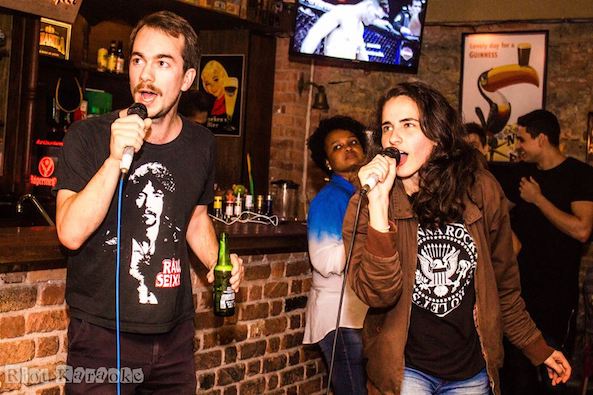
Le karaoké et la bande originale des rêves
by Jack
As someone who enjoys listening to music, singing, and drinking in fairly closely overlapping venn diagram circles it's not much of a surprise that I've had various and varying encounters with the blessed art of karaoke.
Karaoke, for me, is interesting because it is both such a complex mash-up of popular culture, human behavior, social interaction that is also often considered so silly, so cliché, so uncool, that for the most part it kind of circumvents any serious critical study.
Of course there have been people who have investigated its social, political and cultural role (I just googled 'karaoke critical study' and some fantastic results came up, including Performing Rebellion: Karaoke as a Lens into Political Violence and Karaoke Nights: An Ethnographic Rhapsody a whole book-length study of karaoke that I think I might have to go and buy if they ship it to Brazil, but it's nowhere near the pantheon of acceptable pop culture references to study or cite as a 'cool' academic e.g. K-pop, Twilight Zone, Vogueing, to name the first three that came to mind.
How come none of the French guys (you know the ones) ever wrote a paper called Le karaoké et la bande originale des rêves (Karaoke and the soundtrack of dreams)?
This is not that paper, but rather a personal, sketchy wandering through the sparse and beautiful terrain of what we can lightheartedly call 'karaoke studies.'
Lost in Translation and karaoke criteria
I think for a whole generation karaoke was immortalized in the film Lost in Translation. And that's no bad thing, for the scene with Bill Murray and Scarlett Johansson trading songs in a Tokyo bar does pretty well at demonstrating the range of performances and effects that the medium of karaoke can offer.
I'd say there are four main ways that karaoke is performed:
- Bad/bad - bad both in 'technical' performance and effect,
- Good/bad - good in 'technical' performance but bad in effect,
- Good/good - good both in 'technical' performance and effect,
- Bad/good - bad in 'technical' performance but good in effect.
To illustrate further, I'd also like to give examples of each of these four categories.
1. Bad/bad: Scarlett Johansson's character in Lost in Translation performs karaoke in the first main way, bad/bad, which is also perhaps the most popular way to perform karaoke. She bops around with a pink wig on, singing a song that google tells me is called Brass in Pocket by The Pretenders
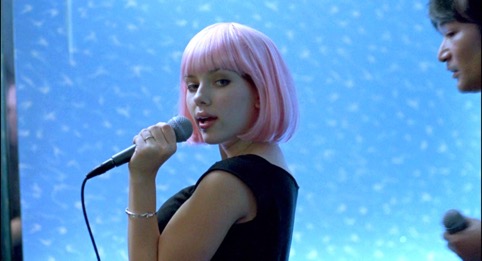
Her performance is, if not intentionally bad then at least self-consciously so. It is campy, silly, probably tipsy drunk but not embarrassingly drunk. It's the performative 'badness' of someone who can neither sing the song how it was originally intended nor invest it with a different voice. It's ironic and 'fun.'
A lot of people perform karaoke like this, and there is nothing wrong with it. Many people consider singing in public in a similar way to speaking in public, i.e. one of the most terrifying things a person can do apart from dying. A bad/bad performance circumvents the risk of a good/bad performance, which is potentially both more embarrassing and/or painful.
2. Good/bad: We've all seen a good/bad performance. Most of us have probably participated in a few. This is quite a broad category and includes people who stand up and sing the song exactly how it was intended, hitting all the notes and getting the timing right. It also includes those people who can really 'sing' and are technically competent, but for some reason or another that technical competency doesn't translate into a good performance.
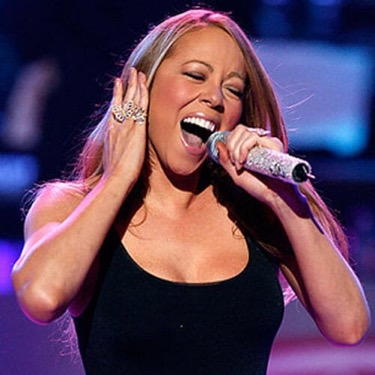
Perhaps it comes across as a bit self-satisfied, a bit too over-rehearsed. A lot of people I know consider this kind of karaoke performance the apex of the medium, and will applause heartily anyone who gets up and belts out their melismatic (that thing Mariah Carey et al. do where they stay on a single syllable but use it as a kind of ski slope to go up-and-down-and-up-and-down their vocal range) performance of Adele, but this is my criteria and I consider these performances good/bad. That's still half good, but it's not the right kind of good for me.
3. Good/good: This is very similar to good/bad and the difference between the two is often down to taste. The person gets up and sings the song well and maybe their genuine emotion shines through, maybe they choose something unexpected but sing it very convincingly, maybe they appear nervous but somehow transform themselves through the singing of the song, maybe they are Susan Boyle.
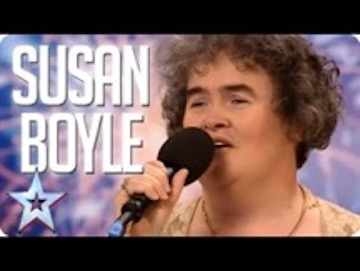
I remember one of the best karaoke performances I've ever seen as an exemplar good/good. It was in a corner shop that had been converted into an impromptu karaoke disco for someone's birthday. The party looked like it had been going on for a while. It was probably past midnight. People were mainly bad/bad-ing in duet to songs that everyone knew, the karaoke canon of Queen, Abba, Guns n' Roses. Then this guy turned up. He looked intoxicated but not from alcohol, sort of slow and precise in his movements, like a heroin kid with brown teeth and those 3D cinema sunglasses on.
Someone said his name was Nico and he stumbled up to the screen and proceeded to do a pitch-perfect rendition of Love Me Tender by Elvis Presley in the manner of Nicolas Cage in Wild at Heart. It was good, it was histrionic (he fell to his knees etc.) the vocals were impressive, but it was all a little bit too 'knowing' (reminded me of Nick Cave's postmodern balladry) in a way that would probably tip the performance into the good/bad category depending on how well you knew the guy and how many times you’ve seen him perform this particular trick.
Then he stepped up again, all of a sudden full of pep, as the backing track pounded out a slick four-on-the-floor intro that sounded like something from the early days of hip-hop. "Check it out, yo!" This mad bass riff flunked around, "Huh!" he shouted with expert timing and did a spin, proceeding to rap a combination of German, English and nonsense (probably Viennese slang) for three minutes, while also doing these incredible rhythmic interjections and dance moves. It was Falco’s Der Kommissar, a song I'd never heard before, and I was mesmerised.
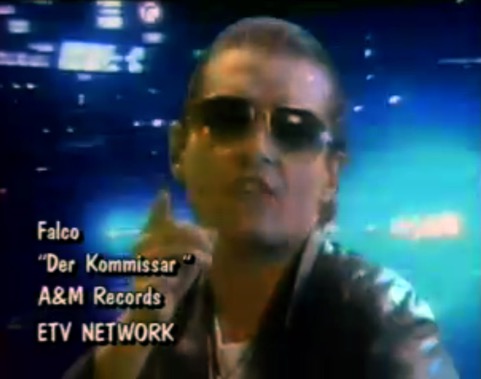
In the sober light of the next day, I found the song and and realized that the previous night's performance of it was pretty much a syllable-perfect rendition of this rather dazzling Austrian proto-rap that seemed to be something of an international hit in the 80s. Having said that, the performance captured the energy and ingenuity of the original in such a way that I was impressed by it without ever having heard the song before. I think that is the mark of a very fine good/good performance.
4. Bad/good: My favorite category, and perhaps the rarest of them all. To go back to Lost in Translation, I would argue that Bill Murray's character, in contrast to Scarlett Johansson's, treats his karaoke performance rather differently, and brings out a stellar bad/good performance.
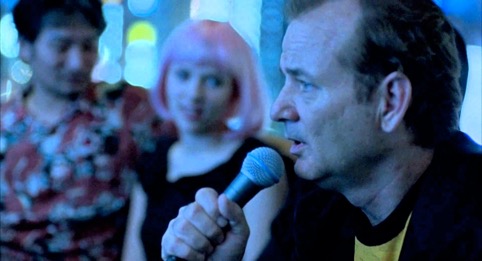
He sings More Than This by Roxy Music, originally sung by Bryan Ferry. It is one of the bands more popular hits, though at the time of the film's release I think it would probably have been considered a little silly, an 80s glam rock ballad with a questionable music video. It's a fairly non-ironic song of lost love and unfulfilled desire.
However, the way Bill Murray's character sings the song both seems to pay homage to the original spirit of the composition and reinvent it. His performance creates a sort of alternative meaning and version of the song that is very much fitting to the particular moment in which he is singing it.
People have commented on how when he sings "There is nothing more than this..." and looks at Scarlett Johansson's character, the words take on a new meaning that applies to that situation they are experiencing right at that particular moment: singing karaoke together in Tokyo, spending that odd week of friendship together, that lingering glance, all of it. But I'm going to expand upon Bill Murray's performance a bit more after a quick tangent.
The baseline for most people when they perform karaoke is to at least 'sound like' the original song enough so that people are reminded of the recording in the same way they would be if someone just played it at a bar or a club. People often want to 'do justice' to the original because they like that song so much or it means something to them.
Then there is also an opportunity to do a song differently, or to somehow twist the song in that particular moment. This is an almost inescapable aspect of karaoke (the actual live performance part, both vocal and physical) because unless you perform hidden from view and sound exactly like Michael Jackson's recording of Beat It, for example, then you are going to be combining a part of yourself (your voice, persona, whatever) and a part of that particular set of circumstances (time, place, situation etc.) with that particular song into what we would call the 'performance.'
This is how I think karaoke can combine the different effects we experience from recorded music and live performance in a very interesting way.
There are many ways in which these two aspects - the original song and the person's performance of it - can combine. To go back to Bill Murray as an example, 'More Than This' is the original song, which is rather sheeny, emotional but in a detached way. Then Bill Murray's character's performance is vulnerable, yearning. It’s almost as if his version is the original and Roxy Music's is the cover. Bryan Ferry is actually performing a glitzed up karaoke of what was originally a stripped-back, fragile number composed by an aging, fictional American movie star at the turn of the millenium.
If I were writing Le karaoké et la bande originale des rêves, I would say that karaoke is like a séance with people's memories. I bet it sounds better in French.
Le karaoké est comme une séance avec la mémoire des gens.
Epilogue: Alternate Reality Cover Versions
To go back to something anecdotal, one of my favourite experiences with karaoke was when I got up to perform Angels by Robbie Williams at a pub karaoke night. It's up there with the most popular British karaoke songs of all time. I think it's the most popular funeral song in the UK as well. So people have a lot riding on this song. I did it in the style of a latter-day Leonard Cohen. It felt amazing (I was very drunk). Someone shouted, "put some effort into it!" and another guy walked up to the stage in genuine dismay and told me I wasn't doing it right.
I suppose in my drunken mind I had kind of reverse engineered an original 'pure' version of the song. Another late Leonard Cohen hit, Hallelujah, had become a staple for karaoke warblers and pop stars both real and delusional the world over, so why couldn’t golden-voiced Leonard the songwriter reclaim the original word poem of Angels for himself, despite not having written it in the first place?
I like this idea of an alternative reality cover version. Since then I've thought of a couple more - some work, some don't. There's a very delicate formula that I haven't yet mastered that can make something kitschy all of a sudden have gravitas, or the other way around (or maybe kitsch and gravitas are just a matter of perspective?)
Could a latter-day Leonard Cohen have conceivably penned Californication, in the same style as The Future? I've tried it and I don't think so. It's too rhythmically complex for an LC composition. Yet an old, statesmanlike Leonard Cohen could have easily penned and performed Human, later covered by The Killers. It wasn't his finest hour perhaps, but its sparse oblique poetry and wordplay are unmistakable Cohen hallmarks.
I'm still trying to find more alternative cover versions. Bob Dylan's Hit Me Baby One More Time almost works - perhaps it was Buddy Holly who originally recorded that. My friend sings Sweet Jane in the shower as Elvis Presley.
On the topic of Elvis, something that is thematically very similar is this Elvis impersonator recording Crazy Little Thing Called Love, which was originally written as an homage to Elvis. The Youtube comments by outraged Queen fans are really something else.
